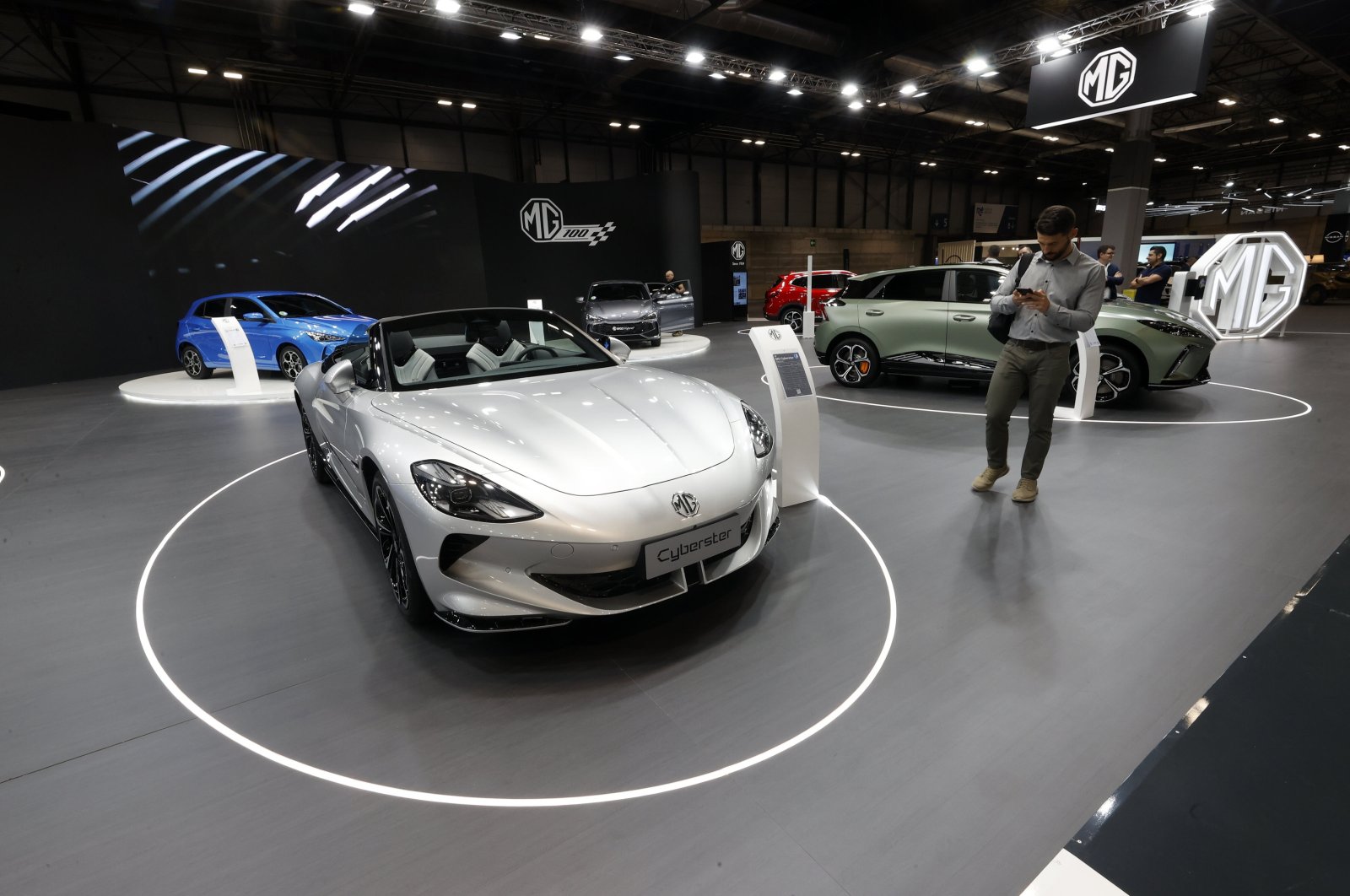Chinese carmakers set sights on Türkiye plants after tariff hike
Chinese SAIC Motor is close to signing a memorandum with a Turkish company for a car plant in Türkiye, a top executive said on Monday, days after Ankara announced plans to impose additional tariffs on imports of vehicles from China.
Apart from the state-owned automobile manufacturer behind the MG brand, Chery has also expressed its interest in investing in Türkiye.
Kağan Dağtekin, the CEO of Doğan Trend Otomotiv, said the company has a confidentiality agreement with SAIC. He mentioned that they are on the verge of signing a memorandum of understanding regarding an investment in a facility that would manufacture combustion and hybrid-engined cars in the initial phase.
Türkiye on Saturday said it would impose a 40% additional customs duty on all vehicle purchases from China, aimed at halting a possible deterioration of its current account balance, protecting domestic automakers and encouraging investment.
A presidential decree on the decision was published in the Official Gazette.
The additional tariff is set at a minimum of $7,000 per vehicle. The decision will be effective from July 7.
Ankara has sought to lure Chinese carmakers to invest in the country, which is one of the top automotive manufacturers in the world. Top officials, including Industry and Technology Minister Mehmet Fatih Kacır, visited multiple Chinese companies and held high-level talks during recent China trips.
Dağtekin suggested that the additional customs duty somewhat contained a message for Chinese manufacturers to “take action if you have an appetite for investment.”
“This is a positive thing. We have a strong structure in terms of incentives, even compared to Europe,” he noted.
Chery Türkiye President Si Fenghuo said they “respect” the government’s additional tariff decision.
“Türkiye is one of our most strategic markets and also a significant part of Chery’s European strategy,” Si said in a statement on Monday.
“Given the current situation, while we are working to adapt to the changes, we are also intensively conducting feasibility studies for building a factory and producing in Türkiye in collaboration with the relevant ministries,” he noted.
“We are striving to begin production in Türkiye as soon as possible.”
China is facing increasing trade pressures worldwide over its growing exports of electric vehicles, which many countries claim are being heavily subsidized by Beijing to support its sputtering economy.
For China, Europe, one of the world’s largest automotive markets, holds particular significance.
Chinese manufacturers, seeking to circumvent trade measures like the additional customs duties expected to be announced by the European Union in the coming days, are deciding to invest in European manufacturing facilities.
SAIC aims to establish two facilities in Europe, according to two sources cited by Reuters. Chery, which has invested in Barcelona, Spain, is also reportedly in talks with Italy, according to another source.
Türkiye imposed additional tariffs on Chinese electric vehicles in 2023 to support the country’s first domestically produced EV brand, Togg and brought some regulations regarding EV maintenance and services.
The number of Chinese brands entering the Turkish market has accelerated over the past two years.
Electric as well as combustion-engined car imports from China made up about 8% (38,000 units) of local sales from January through May this year, data from Türkiye’s Automotive Distributors and Mobility Association (ODMD) shows.
Almost all of the sales have been made by Cherry and MG.
Last year, Chinese brands accounted for about 5% of the market, with approximately 59,000 vehicle sales.
Togg has sold 11,288 units of its C-SUV T10X model in the first five months of this year, accounting for nearly 40.1% of the total EV market.
Doğan Trend Otomotiv is a local distributor for SAIC’s MG marquee.
Dağtekin said the hikes would have been preferable if they were announced in step with the European Union, which is expected to disclose its own plans for tariffs on Chinese electric vehicles.
The Trade Ministry said the additional tariff decision was made considering current account deficit targets and efforts to encourage domestic investment and production. Türkiye seeks to reduce its chronic current account deficit, which stood at $45.2 billion last year.
The local share in Türkiye’s auto market, which was 41% in 2019, dropped to 39% in 2022 and 32% in 2023, according to the ODMD data. The share continued to decline in the first five months of this year.
The rapid increase in car imports from China weighs heavily on Türkiye’s foreign trade deficit. The gap with China exceeded $40 billion last year, according to official data.
Türkiye’s car exports to China are near zero. Last year, some $1.3 billion, or 7%, of the $18.2 billion spent on passenger car imports was made for vehicles from China.
Dağtekin said new vehicle sales are expected to decrease somewhat after July, and prices for new and used vehicles are projected to rise.
“It is possible that new vehicle sales (on a monthly basis) could fall below the 10-year averages after July,” he noted.



